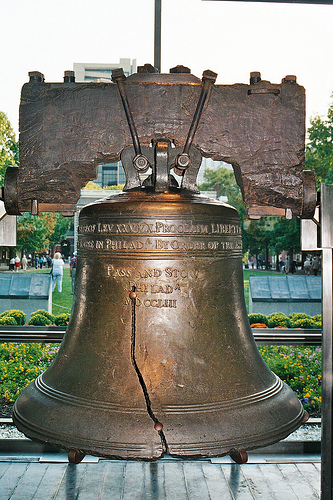Learning from the Democratic-Republicans

It seems odd to think about a party called the "Democratic-Republican" party in this day and age, as our main parties are the Democrats and the Republicans, but it was actually one of the most powerful early political parties in U.S. history.
The root of the name and the ethos is found in the meaning of the word "republican." While today it has become synonymous with conservatism and Christian values, originally it simply referred to the school of thought behind "republics." Early American politicians thought of a "republic" as a form of government where the people were collectively in charge, as opposed to the monarchy or another form of centralized figurehead power.
From 1801-1829, the third through the sixth U.S. presidents were from the Democratic-Republican party, including Thomas Jefferson, James Madison, James Monroe and John Quincy Adams.
Created by Thomas Jefferson and James Madison, the party held up farmers as ideal citizens. The impetus for the founding of the party by Jefferson and Madison was the push by Alexander Hamilton and his Federalist party to create a national bank. The Democratic-Republicans opposed centralizing the power over money to a single national bank that worked in concert with the federal government. We see echoes of this kind of distrust of national power and spending by a centralized national bank in the debate over what John Boehner argues to do about our gigantic national debt and similar arguments about states having the right to deny "Obamacare."
In many ways, their opposition to a powerful national bank was an argument for localized power and the avoidance of what happens now, when the government and the Fed work in concert to manipulate interest rates. For us, this has become the way the economy works without the gold standard to balance it anymore.
From this stance, the one the Founding Fathers had that seems to have gone most by the wayside, I think we can take a step back and look at our financial system. It's not how it used to be for a reason - because we have expanded as a nation. For an idea about what decentralized financial control would look like, we can look over at Europe before the Euro came about, and some of their current struggles.
The biggest takeaway for me is that not everything that worked in the beginning still works. If we took that view when we argued about new legislation, I think we would use our Constitution and Amendment process to move forward more than to parse semantic legalities.
Image courtesy of Lee Bennett via flickr

1 comments